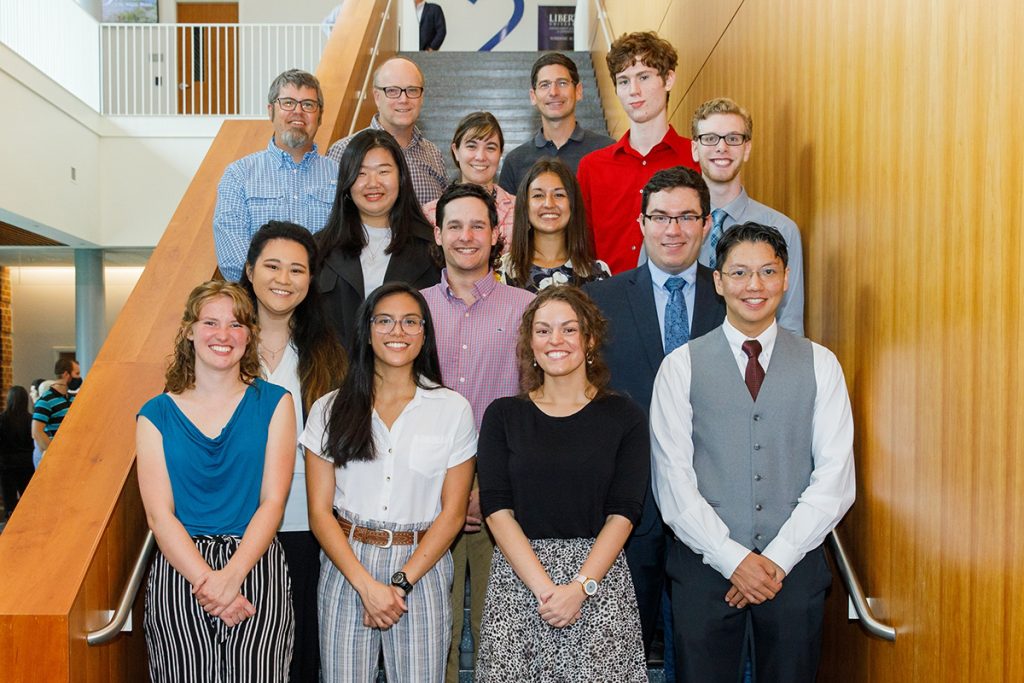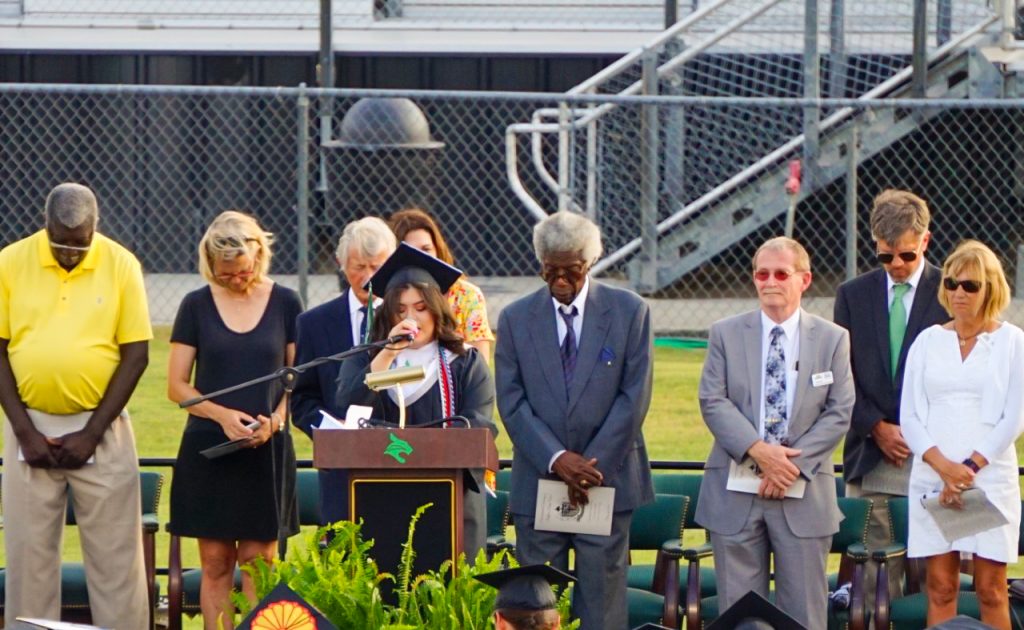Growing up, Melida Molina Alvarado did not think she could go to college. A first-generation Honduran American, she had no one to guide her through the complex process of American college prep, applications and standardized testing.
So, she dove in and figured it out herself. Now, Alvarado is a junior in Liberty’s biopsychology program and just finished a summer of conducting neuroscience research.
She and her research partner, Lillian Gordon, demonstrated how various neuroscience methods can be used to understand behavior. Led by Dr. Matthew Lazenka, an associate professor of biology and chemistry, Alvarado and Gordon studied behavior at the protein level and measured choice behavior using rats.
They conducted this research as part of the ASSURE (Acquiring Skills for Students Underrepresented in Research Experience) program, which partners students with a professor for six weeks during the summer.
According to Alvarado, Lazenka created the program as an opportunity for underrepresented students at Liberty to get their foot in the door of scientific research. Fourteen students participated in ASSURE, studying topics that aligned with their interests under the guidance of Liberty professors.
“It was all God,” Alvarado said in regards to how she got connected with the program.
A friend and fellow science major reached out to Alvarado and described the program, urging her to apply. Unfortunately, Alvarado did not meet the minimum GPA and course requirements.
“I said no, but God said yes,” Alvarado said.
The same friend spoke to the professor and set up an interview for Alvarado. Because Alvarado had taken many upper-level psychology classes, Lazenka wanted to give her the opportunity.
“Liberty fosters such a great community of people who, yeah, are believers, but also people who care for you genuinely and professors who are there to help you succeed,” Alvarado said. “I’m just so grateful for that, and for Liberty and for the opportunities I’ve been given here.”
The challenges that qualified Alvarado for this program nearly kept her from attending college in the first place. As a first-generation Honduran American, Alvarado did not have family members who could guide her through the college application process. No one in her family had attended college in America.
Alvarado’s father—and later, her mother and brother—had immigrated to the United States from Honduras through hard work. Once in America, Alvarado’s mother started her own housekeeping business, and her father worked as an electrician.
Alvarado explained that while her parents couldn’t attend her guidance meetings throughout high school, they always valued her education and supported her throughout the process. She did much of her own research to continue her education and worked hard to create the necessary opportunities. She attributed this work ethic to her parents.

“They have taught me more in life than anyone in this world—how to be a hard worker, how to be honest and how far integrity goes,” Alvarado said. “They might not have the education, but they have the grit to succeed and to want more in life.”
After she graduates from Liberty, Alvarado plans to attend medical school. Her extended family in Honduras boasts many nurses and a doctor, so she believes entering the medical field is in her blood. Alvarado’s grandmother, in particular, who worked as a midwife with no formal education, inspired Alvarado and her relatives to pursue medicine.
“We can all say that it’s because of my grandma and her experiences and what she taught us,” Alvarado said. “That’s why I want to be a doctor, just as an homage to her and all that she inspired in her legacy.”
According to Alvarado, becoming a doctor would not be a singular accomplishment. It would be an accomplishment shared by the whole family.
“It’s not like, ‘I did it.’ It’s like, ‘We did it,’” Alvarado said. “I am so excited to be able to sit there and be like, ‘We did this. We all made Melida become a doctor, with all the support and all the love.’”
Alvarado urged other people in the Latinx community to pursue their dreams, and she is optimistic that doors will open for them like they did for her.
“I want to encourage all my fellow Latinx community to say, ‘Yes, we can—sí se puede’—and we all are able and capable of pursuing our dreams,” Alvarado said. “God is always there, and he will fulfill all the promises that he has for us.”
Farmer is the web and social media manager. Follow her on Twitter at @reneefarmerr.
